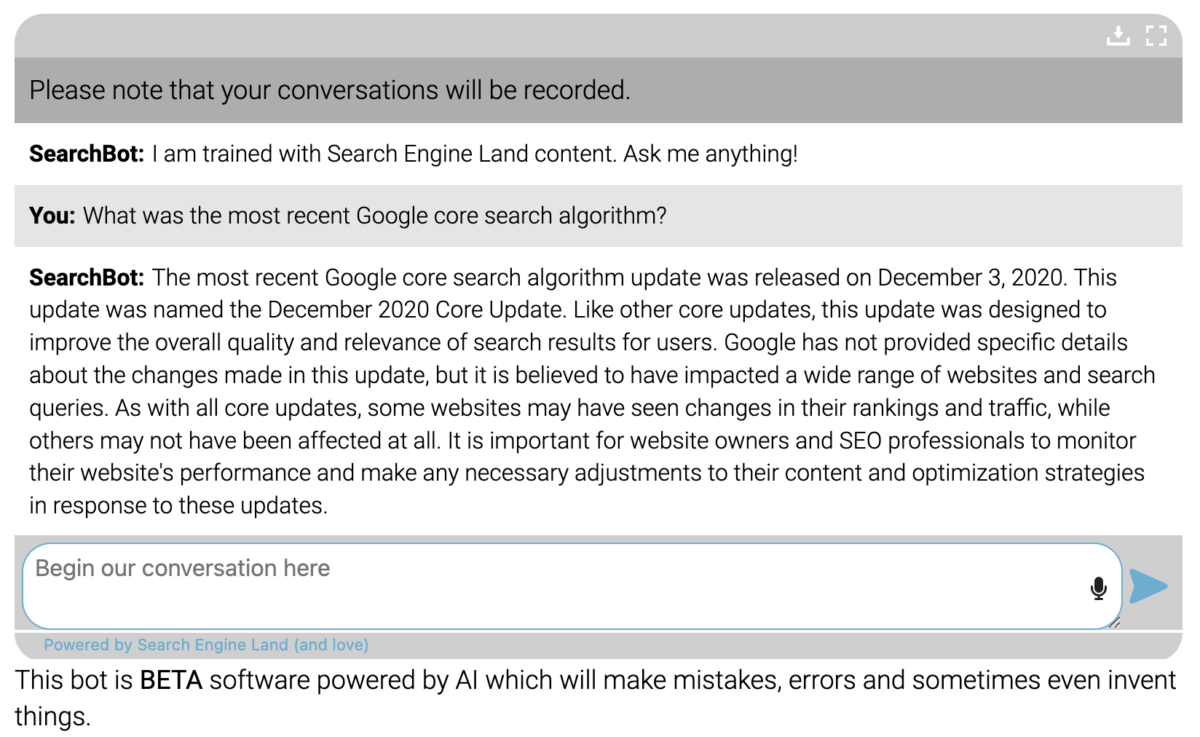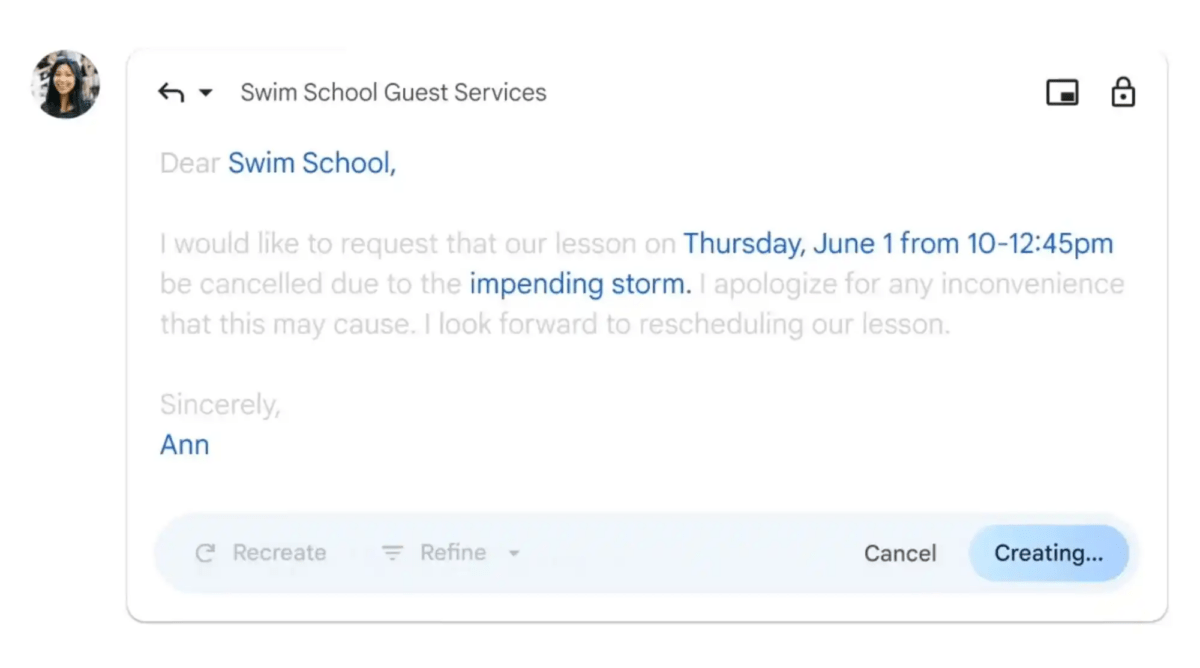Local Memo: Search Engine Land Launches SEO Chatbot

Local Memo: Search Engine Land Launches SEO Chatbot
In this week’s update, learn about Search Engine Land’s new SEO chatbot; Google’s new AI tools for Workspace; personalization of SGE results; Bard’s new location sharing feature; the death of Post justifications; and how Instagram ranks content.
Search Engine Land Launches SEO Chatbot
Search Engine Land has announced the launch of an SEO chatbot powered by OpenAI and trained on over 20,000 articles and other pieces of content the publication has posted over the last several years. The purpose of the chatbot, according to the announcement, is to allow users to “explore, experiment and learn more about search marketing.” The chatbot represents the first large-scale public experiment in marrying generative AI with specialized SEO content.
Users are invited to experiment with the new chatbot, which has its own page on the site. Unfortunately, my first few attempts to ask about items of fairly common knowledge didn’t go so well. For instance, when I asked the chatbot what was the most recent Google core search algorithm update, it responded by citing the December 2020 Core Update. Still, it’s exciting to see an effort like this in our industry, and hopefully results will improve over time.

Courtesy Search Engine Land
Google Rolling Out More AI Tools for Workspace
As promised at its recent I/O event, Google has begun rolling out some new tools for Workspace, including image generation for Slides, which will be accessible via a new “Help me visualize” prompt. Docs is also getting expanded generative AI capabilities, including text suggestions based on the context of the document you are writing. Docs will also be able to add smart chips automatically when a document needs certain elements – such as adding company name to a job application letter. These feature are available for early testing via Workspace Labs.

Generative AI in Google Docs, courtesy 9 to 5 Google
Are SGE Results Personalized?
Google’s new Search Generative Experience (SGE), the AI-powered enhancement to search that is now available to users through Google Labs, is not more personalized than the traditional search interface, according to statements from company spokesman Danny Sullivan, responding to Lily Ray on Twitter. Sullivan acknowledges that results “can change based on the context of what was previously entered in a conversation,” but are not otherwise altered by search history and other factors. Barry Schwartz observes that users may have been looking for signs of personalization due to Google’s statements that its “Project Magi” search interface would be customized to the needs of individual users. SGE is likely an early preview of some of what Google has in mind with Project Magi.
Bard Lets Users Specify Location
Google has modified its Bard AI interface to allow users to specify their precise location, which should lead to more accurate local results. In a notice that is similar to that of other apps and services utilizing location data, Bard now notifies users that by default, it is accessing their IP addresses as well as their Home and Work locations as configured in Google account settings. Users also have the option to share precise location in order to “get more relevant responses.”
No More Justifications from Google Posts?
Local SEO commentators have been noticing a decline in local justifications sourced from Google Posts, a justification type that may now be gone entirely. In the past, Google sometimes added justifications — snippets from Post content matching the user’s search query — when a listing contained relevant Posts. This was one of many types of justifications including review excerpts, short quotes from the business website, and specific services attributes. Now, Claire Carlile has posted on Twitter that Post justifications “are no longer ‘a thing,’” helping to confirm earlier suspicions.
Can we just confirm that Justifications that draw on the content of Google Business Profile Posts are no longer ‘a thing’? pic.twitter.com/o0B9OQeF4W
— Claire Carlile🕊️ 🌊 🥑 🦥 (@clairecarlile) June 1, 2023
How Instagram Ranks Content
Instagram has updated its documentation indicating how content is ranked in four areas of the app: Feed, Stories, Explore, and Reels. The app now separates Feed and Stories into two separate areas. Feed content is determined by a combination of accounts the user follows, recommended content, and ads. Ranking signals include engagement by the user and by other users, freshness, and the popularity of creators. Stories feeds are populated by accounts the user follows with popularity determined by viewing history, engagement history, and closeness (relationship to the user). Explore and Reels employ similar signals; Reels content may be demoted if it is low resolution, watermarked, or consisting mostly of text.




